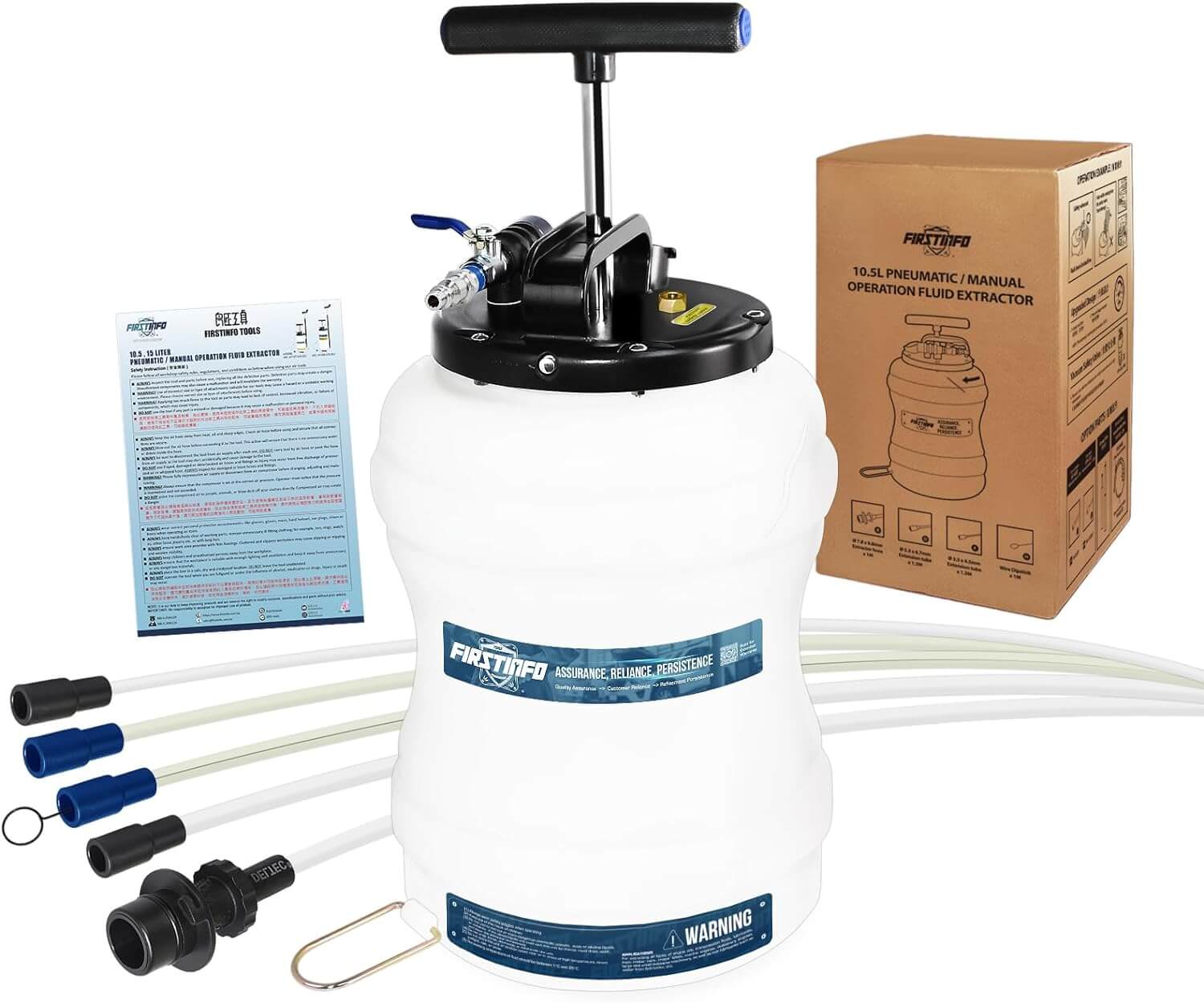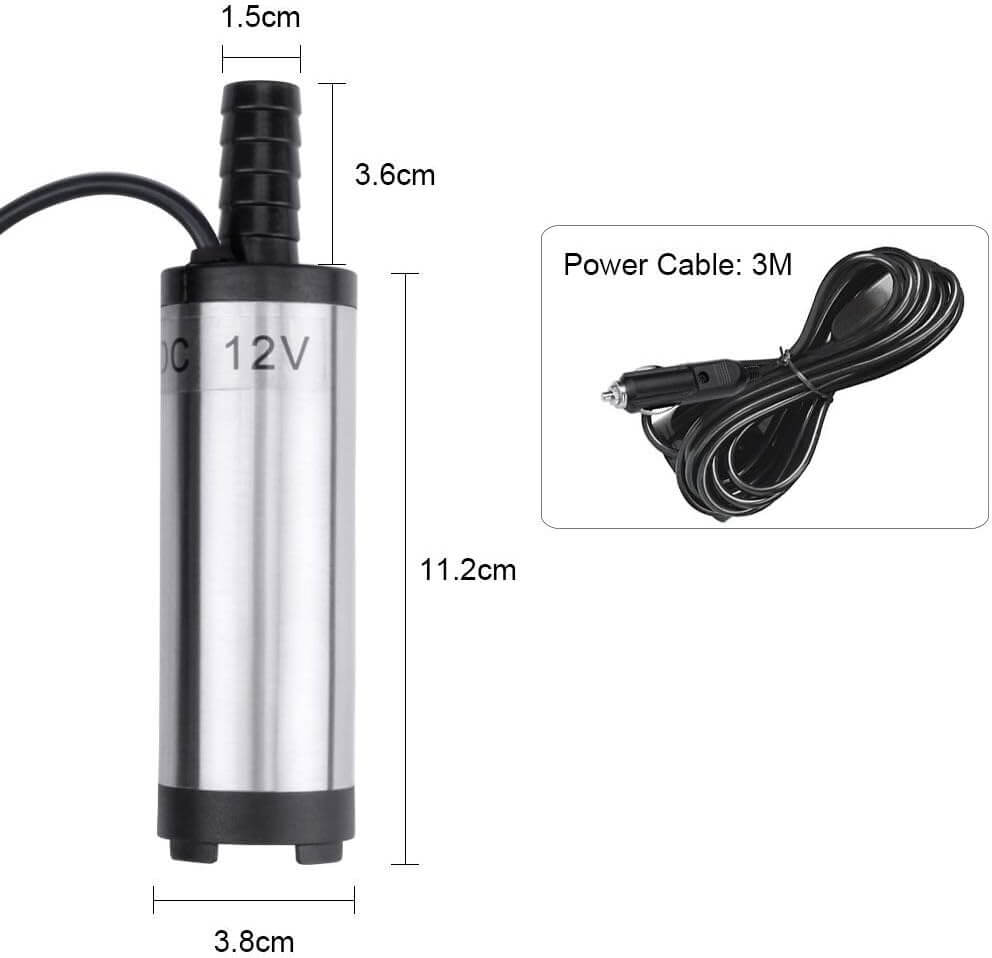In today’s fast-paced world, finding ways to increase fuel efficiency has become more important than ever. That’s why many automotive enthusiasts are turning to oil pump extractors as a solution. These innovative devices allow you to remove old oil from your vehicle’s engine without the need for messy and time-consuming manual pumping.
But how exactly do oil pump extractors impact fuel efficiency? In this article, we will explore the benefits of using these tools and how they can contribute to a more economical and environmentally friendly driving experience. So, if you’re eager to learn how oil pump extractors can make a difference, read on!
Background
Introduction
In today’s world, where environmental concerns and rising fuel costs are priorities, it has become crucial to maximize fuel efficiency in vehicles. Fuel efficiency not only helps in reducing the carbon footprint but also saves you money in the long run. One significant factor that plays a vital role in fuel efficiency is the proper maintenance of your vehicle’s engine and its lubrication system. This article will shed light on the importance of fuel efficiency, with a focus on the role of oil pump extractors in achieving optimal performance.
The Importance of Fuel Efficiency
Fuel efficiency is a measure of how effectively a vehicle converts fuel into usable energy to propel itself. It is a key consideration for both individual vehicle owners and businesses that rely on fleets of vehicles. Improved fuel efficiency not only reduces fuel consumption but also lowers overall carbon emissions and helps mitigate the detrimental impact of vehicles on the environment.
Role of Oil Pump Extractors
Oil pump extractors are devices specifically designed to remove used oil from engines without the need for traditional draining methods. They play a crucial role in maintaining engine health and optimizing fuel efficiency. By thoroughly extracting the used oil, oil pump extractors ensure that the engine is adequately lubricated with fresh oil, thus promoting smoother operation and enhanced fuel efficiency.
Understanding Oil Pump Extractors
Definition and Purpose
Oil pump extractors, as the name suggests, are tools used to extract oil from the engine of a vehicle without having to remove any parts or dismantle the engine. They provide a clean and efficient method of replacing used oil with fresh oil. The primary purpose of oil pump extractors is to maximize engine performance and prolong engine life by removing impurities and maintaining the appropriate oil level.
Different Types of Oil Pump Extractors
There are various types of oil pump extractors available in the market. Manual extractors are hand-operated devices that use a vacuum to extract oil, whereas electric extractors utilize an electric pump to perform the task. Pneumatic extractors, on the other hand, employ compressed air to create the necessary vacuum for oil extraction. Each type has its own advantages and may be more suitable for specific applications or user preferences.
Working Mechanism
Oil pump extractors operate by creating a vacuum inside the extraction tube or chamber. This vacuum sucks the used oil from the engine into the extractor, effectively removing it from the system. The extracted oil is then collected in a separate container for proper disposal or recycling. Some extractors come with additional features such as a dipstick tube adapter, which allows for precise extraction directly from the dipstick tube.
Factors Affecting Fuel Efficiency
Importance of Regular Oil Changes
Regular oil changes are essential for maintaining fuel efficiency. Over time, engine oil degrades and becomes contaminated with impurities, reducing its ability to lubricate the engine effectively. By replacing the old oil with fresh, high-quality oil, the engine is able to operate at its optimal level, resulting in improved fuel efficiency.
Effect of Oil Viscosity
Oil viscosity, or thickness, is another crucial factor that affects fuel efficiency. Different engines require different oil viscosities to ensure optimal performance. If the oil is too thin (low viscosity), it may not provide sufficient lubrication, leading to increased friction and decreased fuel efficiency. On the other hand, if the oil is too thick (high viscosity), it may impair the engine’s ability to operate smoothly, again impacting fuel efficiency. Properly selecting the right oil viscosity for your vehicle is essential in maximizing fuel efficiency.
Influence of Engine Cleanliness
A clean engine is a more efficient engine. The accumulation of dirt, sludge, and other contaminants in the engine can impede the smooth functioning of internal components and increase friction. This leads to increased fuel consumption and decreased fuel efficiency. Regular maintenance, including using oil pump extractors to remove used oil and debris, helps keep the engine clean and ensures optimal fuel efficiency.
Impact of Oil Pump Functionality
The functionality of the oil pump directly affects fuel efficiency. The oil pump is responsible for circulating oil throughout the engine, ensuring proper lubrication of all moving parts. If the oil pump malfunctions or does not operate at its full capacity, it may result in inadequate lubrication, increased friction, and reduced fuel efficiency. Using oil pump extractors allows for efficient oil extraction and ensures that the oil pump is supplied with clean oil for optimal functioning.
Benefits of Oil Pump Extractors
Efficient and Complete Oil Extraction
With traditional oil draining methods, a certain amount of used oil often remains trapped in the engine, resulting in incomplete oil changes. Oil pump extractors address this issue by thoroughly extracting the used oil, leaving no residue behind. This ensures that the engine receives a complete oil change, promoting better lubrication and improved fuel efficiency.
Reduced Maintenance Costs
Regular oil changes using conventional methods can be time-consuming and costly, especially if performed by a professional. Oil pump extractors make the process more efficient, allowing for quicker oil changes that can be done by the vehicle owner. By eliminating the need for professional assistance and reducing maintenance time, oil pump extractors help reduce maintenance costs in the long run.
Time-saving
Oil pump extractors offer a significant time-saving advantage compared to traditional oil draining methods. The extraction process is quick and efficient, requiring less time and effort. Whether you are a DIY enthusiast or a professional mechanic, using oil pump extractors can significantly reduce the time spent on oil changes, allowing you to allocate your time and resources to other important tasks.
Improvement in Fuel Consumption
One of the key benefits of oil pump extractors is the potential improvement in fuel consumption. By ensuring that the engine is supplied with clean oil, free from contaminants and impurities, oil pump extractors contribute to smoother engine operation and reduced friction. This overall improvement in engine performance leads to enhanced fuel efficiency and reduced fuel consumption.
Improved Fuel Efficiency with Oil Pump Extractors
Prevention of Residual Oil
Traditionally, during oil changes, a certain amount of residual oil remains in the engine, mixing with the fresh oil. This residue can affect the overall quality and performance of the lubricating oil, leading to decreased fuel efficiency. Oil pump extractors eliminate this issue by thoroughly extracting the used oil, ensuring that only fresh oil is present in the engine, thereby maximizing fuel efficiency.
Enhanced Engine Performance
Proper lubrication is crucial for the smooth operation of an engine. Oil pump extractors help maintain the optimal level of clean oil in the engine, reducing friction and promoting efficient movement of internal components. This enhanced engine performance translates into improved fuel efficiency, as the engine operates more smoothly and effectively.
Reduction in Engine Wear and Tear
Insufficient lubrication can cause excessive wear and tear on engine components, leading to decreased fuel efficiency. By ensuring that the engine is consistently supplied with clean oil, oil pump extractors contribute to reducing friction and minimizing wear and tear. This, in turn, extends the lifespan of the engine components, optimizing fuel efficiency in the long run.
Comparison with Traditional Oil Change Methods
Drain and Fill Method
The traditional drain and fill method involves removing the oil drain plug to drain the used oil from the engine. While this method is widely used, it has certain limitations. The drain and fill method is often time-consuming, requiring the vehicle to be elevated and the oil to be drained slowly. Additionally, this method may not completely remove all the used oil, leaving behind residue that can affect fuel efficiency.
Suction Extraction Method
Another traditional method is the suction extraction method, which involves using a suction tool to remove the oil from the dipstick tube. While this method allows for easier oil extraction without the need to raise the vehicle, it may not be as efficient as oil pump extractors. The suction extraction method may still leave behind residual oil, impacting fuel efficiency.
Advantages of Oil Pump Extractors over Traditional Methods
Oil pump extractors overcome the limitations of traditional methods by providing more efficient and complete oil extraction. They eliminate the need to raise the vehicle or remove any parts, making the process quicker and simpler. With oil pump extractors, there is no residue left in the engine, ensuring optimal fuel efficiency. These advantages make oil pump extractors a superior choice for those seeking to optimize fuel efficiency.
Limitations and Considerations
Compatibility with Different Vehicle Types
While oil pump extractors are generally compatible with various vehicle types, it is important to ensure that the selected extractor is suitable for your specific vehicle. Different extractors have different capacities and specifications, and it is crucial to choose the one that matches your vehicle’s requirements.
Proper Handling and Maintenance
To ensure optimal performance and longevity, oil pump extractors need to be handled and maintained correctly. Regular cleaning and inspection are necessary to prevent any buildup or damage that could affect their functionality. Following the manufacturer’s instructions and guidelines is crucial to ensure the safe and effective use of oil pump extractors.
Professional Assistance
While oil pump extractors are designed to be used by vehicle owners, some individuals may prefer to seek professional assistance for oil changes. If you are unsure or uncomfortable using an oil pump extractor, it is advisable to consult with a professional mechanic who can perform the oil change for you, ensuring that it is done correctly and efficiently.
Cost Considerations
Oil pump extractors vary in terms of cost, depending on factors such as brand, quality, and features. When considering purchasing an oil pump extractor, it is important to evaluate your budget and select a reliable extractor that fits your financial capabilities. While oil pump extractors may require an upfront investment, the long-term benefits in terms of improved fuel efficiency can outweigh the initial cost.
Real-world Examples
Case Studies on Fuel Efficiency Improvement
Numerous case studies have demonstrated the positive impact of oil pump extractors on fuel efficiency. In one study conducted on a fleet of delivery trucks, the implementation of oil pump extractors resulted in a 5% reduction in fuel consumption. Another study observed improved fuel efficiency by up to 10% in an agricultural machinery fleet after incorporating the use of oil pump extractors. These real-world examples highlight the significant fuel-saving potential of oil pump extractors.
User Testimonials and Experiences
Users who have incorporated oil pump extractors into their maintenance routine have reported positive experiences and improved fuel efficiency. Many have shared how the use of oil pump extractors has made the oil change process quicker and more convenient. They appreciate the efficiency and thoroughness of oil extraction, ensuring a clean engine and enhanced fuel efficiency. User testimonials further emphasize the importance and effectiveness of oil pump extractors in optimizing fuel consumption.
Conclusion
Key Takeaways
Fuel efficiency is of utmost importance in today’s world, driven by environmental concerns and rising fuel costs. Maintaining a well-lubricated engine is crucial in achieving optimal fuel efficiency. Oil pump extractors play a significant role in this process by efficiently and thoroughly extracting used oil from the engine. They not only improve fuel efficiency but also reduce maintenance costs, save time, and enhance engine performance.
Importance of Incorporating Oil Pump Extractors
Incorporating oil pump extractors into your maintenance routine is a wise decision if you are seeking to improve fuel efficiency and reduce the overall environmental impact of your vehicle. By ensuring complete oil extraction and clean oil circulation, oil pump extractors contribute to a more efficient and smooth-running engine, resulting in enhanced fuel efficiency.
Future Prospects
As the automotive industry continues to evolve, the focus on fuel efficiency and environmental sustainability is expected to grow. Oil pump extractors are likely to play an increasingly significant role in achieving these goals. With advancements in technology and the development of more efficient and user-friendly extractors, the future looks promising for further improvements in fuel efficiency through the use of oil pump extractors.


